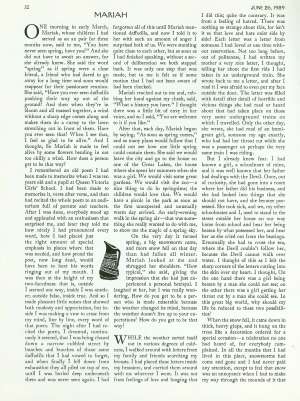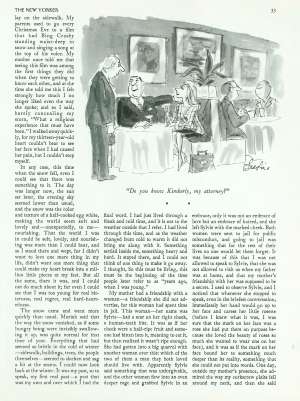The New Yorker, June 26, 1989 P. 32
The narrator, who is from Antigua, has been an au pair for Mariah's children now for the last three months. When spring finally arrives, she feels like she's lived through a bleak & cold time; something hard has settled inside her. She thinks that things must've gone Mariah's way; she has never had to doubt, & so she has never had to grow confident. One spring afternoon Mariah takes her to a park to look at daffodils. On seeing them, the narrator has an impulse to kill them. Where Mariah sees beautiful flowers, she sees bitterness & sorrow. When a letter from the narrator's mother comes, she feels that the object in her life is to put as much distance between herself & the events mentioned. The narrator accompanies Mariah & the children t to Mariah's childhood home on the Great Lakes. The countryside seems like miles of nothing to the narrator. Mariah wants her & the children to see the things the way she did. The children are happy to, but the narrator resists. She al already has a mother who loves her, & she has come to see that love as a burden, designed to make her into an echo of her mother. It is customary for Mariah & her to say goodnight with a hug & kiss, but this time they did it as if they both wished thaey hadn't started the custom. To the narrator, Mariah says she has Indian blood as if she were announcing her possesion of a trophy. Mariah looks at her pleadingly, but the narrator's eyes are hard as she says, "I've been wondering just how you got to be the way you are Mariah holds out her arms to hug her, but she steps back The anguish on Mariah's face almost breaks her heart, but she would not bend.

